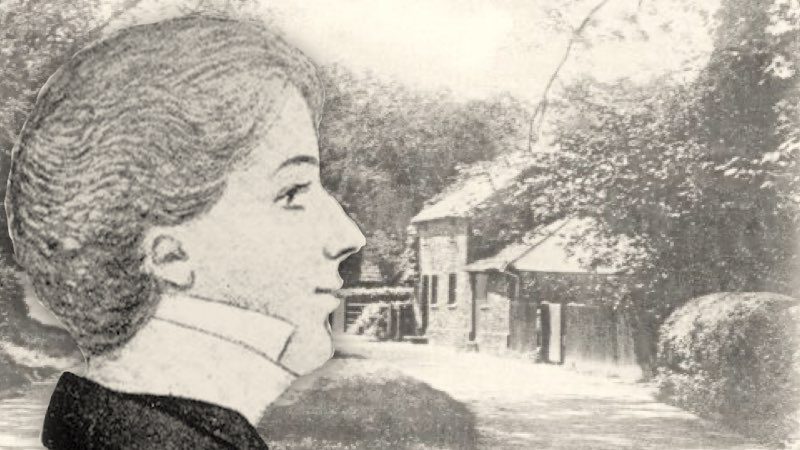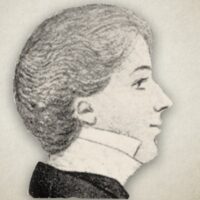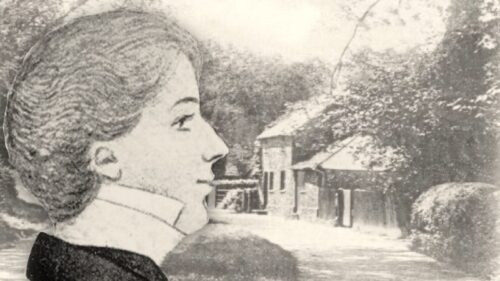
Taught Of The Spirit
March 16, 1830
My dear Brother,
I am happy to say that the sermon has been blessed by God in this neighborhood, and consequently has made a very great stir. I received a letter from a poor man at some distance, thanking me for printing the sermon, as it has been a comfort to his soul and to others. Of course I shall have neither the praise of the unbelievers, nor their good wishes. The gospel is a fan that will separate the chaff from the wheat. The Pharisees and philosophers get but little hope from me, and will, therefore, seek more flattering preaching elsewhere. I am thankful to say the Lord enables me to be faithful; but it will avail nothing to assent to this or that doctrine, unless the Lord writes it on the heart. What is received in the flesh is all nothing, for the natural man receives not the things of the Spirit of God, nor can he know them; consequently a man must be born again of the Spirit to understand then. By nature there is no difference among us; we are all sprung from Adam, and Christ says, “A corrupt tree cannot bring forth good fruit.” The Scriptures make no distinction in us; we are all vile sinners. “What then? are we better than they? no, in nowise.”
The more you know of the truth in a spiritual way, the humbler you will be. To know the mysteries of the gospel it is necessary that you be taught of the Spirit, so as to divide the law and the gospel, and the flesh and the Spirit. Then you will understand the two covenants. Read your Bible frequently. The whole work of salvation is Christ’s, and Christ’s alone. It is to Him we owe all blessing, in Him all fullness dwells, and we are complete in Him. If you can understand and realize that, happy are you. Faith will not profit you without love to Christ and His people. He will then be precious to your soul, and you will rejoice in Him. You will see when the true light shines into your heart, that you are vile and sinful. You will say with the Bride, “I am black, because the sun has looked upon me.” We must be taught of God, that we are not even able to think a good thought. We shall then give all the glory to God, and shall not then think that we can choose between good and evil. A child must be born before it receives milk, and so must man be born again before he can receive the sincere milk of the word.
Praying that grace, peace, and love may be multiplied, I am yours most affectionately,
William Tiptaft
William Tiptaft (1803-1864) was a Strict and Particular Baptist pastor. In 1831, he oversaw the construction of a chapel in Abingdon, where he remained as the Pastor until his death. John Hazelton wrote of him—
“William Tiptaft…exercised a ministry largely used to the awakening of sinners and to the driving of those who had only a name to live from the false confidences in which they trusted.” Joseph Philpot wrote of him—“He seemed ever ready to make any personal sacrifice for the glory of God or the good of His people. Time, money, health, strength, life itself, he did not consider his own. He felt he was but a steward who held them in trust, and who might be called at any hour to render an account of his stewardship. To live to God, to walk in His fear, to serve and please Him, to preach His truth, to do His work, to know and obey His will, and to be made a blessing to His people, seemed to be his daily end and aim. I have known men of greater natural abilities, of deeper and more diversified experience, of more shining pulpit gifts, of more enlarged views of Divine truth; but I have never seen anyone, whether minister or private Christian, who approached him in his own peculiar line of practical Godliness, carried out with undeviating consistency for the thirty-five years during which I had the pleasure and profit of his friendship. The Churches of truth needed an example of the practical power of the doctrines which they profess. A light, loose, Antinomian spirit had too much prevailed, and with a great deal of religious talking there was a very small amount of religious walking. But however low quickened souls or living Churches may sink, they have still a conscience made tender in the fear of God, and to this conscience William Tiptaft's keen, pithy remarks, and, above all, his Godly life and shining example, commended themselves."
William Tiptaft's Letters




